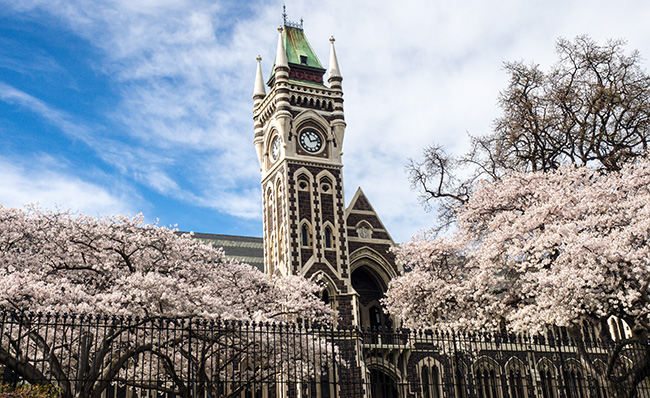
Otago University has announced 23 new Professors and 41 new Associate Professors in its academic promotions for 2018.
The University of Otago will this year promote 23 academics to the position of Professor across its Dunedin, Christchurch, and Wellington campuses. The promotions take effect from 1 February 2018.
Announcing the promotions today, Vice-Chancellor Professor Harlene Hayne warmly congratulated the new professors.
“The individuals involved have earned these promotions through their hard work, dedication and proven excellence during their time as academics with us. Their promotion underscores the very high quality of their leadership, the esteem in which they and their work is held, and the breadth of the academic talent and ability at the University of Otago as a whole,” says Professor Hayne.
"It is good to see people succeeding across disciplines and campuses here at Otago. This year we promoted new Professors in all four academic divisions and from our Dunedin, Christchurch and Wellington campuses.
"I look forward to following with interest the very fine work they will produce in their new positions in the future.’’
She adds that Otago’s rigorous promotion processes involve thorough evaluation of each individual’s record of contributions to research, teaching, and service to the University and community. The selection procedure also includes advice from international experts in evaluating the candidates’ research contributions.
A further 41 University of Otago academics are being promoted to Associate Professor.
Staff promoted to Professor:
Merata Kawharu
Te Tumu: School of Māori, Pacific and Indigenous Studies
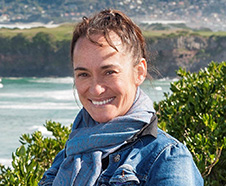
Merata Kawharu.
Māori communities are increasingly moving into social and economic innovation, yet they still face the realities of negative statistics in all areas of well-being. Like any community, other things concern them, including big challenges facing humanity like climate change. Treaty claim settlements are also a significant defining issue of modern times for Māori and New Zealand. Since her Oxford studies in social anthropology, Merata has dedicated her academic life to addressing some of these issues, and more recently has developed models of entrepreneurship along with Professor Paul Tapsell. Merata has also written extensively on cultural knowledge and marae, also working on national boards and work with the UN, UNESCO and leaders in world heritage. A former Director of the James Henare Centre, Merata has won various awards for her publications and community work, including the MNZM for services to Māori education.
James Maclaurin
Department of Philosophy
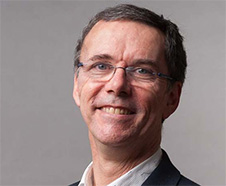
James Mclaurin
James is a philosopher and Associate Dean for Research in the Humanities. He received his doctorate in philosophy of science from the Australian National University. A longstanding advocate for Humanities education, he was awarded a University of Otago Tertiary Teaching Excellence Award in 2011 and was instrumental in the development of the University’s new Bachelor of Arts and Science (BASc) degree. His research focuses on conceptual and ethical issues posed by scientific innovation as well as the process of distilling academic research into public policy in disciplines such as public health, marketing, ecology, information science, and economics. He is currently investigating the social effects of artificial intelligence in a collaboration with Associate Professors Colin Gavaghan (law) and Alistair Knott (computer science), funded by the New Zealand Law Foundation. His books include What is Biodiversity? (with Professor Kim Sterelny) and A New Science of Religion (edited with Professor Greg Dawes).
Greg Jones
Department of Surgical Sciences, Dunedin School of Medicine (DSM)
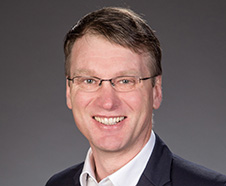
Greg Jones.
Greg Jones’ research focuses on identifying markers to aid the detection of cardiovascular diseases. These include testing for inherited (genetic) and environment-induced (epigenetic) changes that can be detected in simple blood tests. His group has a strong clinical emphasis, particularly in the areas of heart disease, aortic aneurysm, peripheral arterial disease and varicose veins. Greg leads an international consortium, with members from over a dozen countries, which is examining the inherited risk factors for abdominal aortic aneurysm. This study, the largest of its kind, has identified several new aspects of this disease currently under investigation as potential drug treatments. In addition, he is leading a national initiative to equitably improve cardiovascular disease screening in Aotearoa New Zealand.
Paul Hansen
Department of Economics, Otago Business School
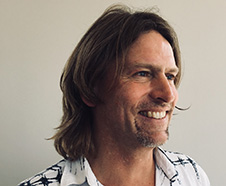
Paul Hansen.
Paul has had the privilege of spending most of his life at Otago studying and teaching Economics, which he loves. These days, most of Paul’s research is focussed on health economics and multiple Criteria decision-making, with emphasis on priority-setting and resource allocation, especially via his software, 1000minds (www.1000minds.com), which he invented with Franz Ombler. Together with Julian Moller and other colleagues, they provide 1000minds to New Zealand and international users – including businesses, governments, charities, researchers and students at more than 200 universities worldwide. During his 30-year Otago career Paul has also been a contractor for Google, an advisor to the World Health Organization, been seconded to the Treasury and consulted for PHARMAC, Housing New Zealand and the Ministry of Health. In 2009-10 he served on the Medicines Review Panel, which contributed to a major expansion of PHARMAC’s roles.
Sarah Derrett
Department of Preventive and Social Medicine, Dunedin School of Medicine (DSM)
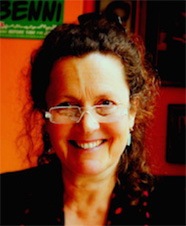
Sarah Derrett
Sarah’s public health research concentrates on health and disability outcomes, policy, and equity. She was a Harkness Fellow (2011-12) at The University of Chicago (US) investigating health care integration; and is an international EuroQol Group member. As Director of the Injury Prevention Research Unit Sarah’s research often focuses on injury, for which she acknowledges Health Research Council funding.
Sarah enjoys working with colleagues, students, and the public. She likes to understand difficult and interesting problems, including how to support New Zealanders with serious illnesses. Can this be done in a way similar to ACC’s support for injured people; how to ensure equitable post-injury outcomes for all New Zealanders including for injured Māori and for vulnerable workers; and how to effectively and genuinely engage as communities, whānau and patients to improve our health system.
Ruth Empson
Department of Physiology, School of Biomedical Sciences
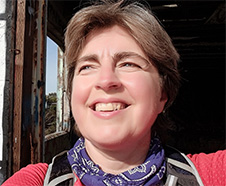
Ruth Empson
Ruth Empson’s research aims to understand how the connections between brain cells, called synapses, work together to change the neural output patterns of specialist brain regions. This process is called neuroplasticity. Her specific interest is to identify how neuroplasticity drives changes in the brain regions that are critical for perception and movement. Most recently, as a New Zealand Fulbright Scholar in the USA, she has explored ways to assess how neuroplasticity contributes to changes in eye movements. This work is also helping the search for new targets to treat specific movement disorders called cerebellar ataxias. Throughout her research she applies high-resolution electrical measurements and optical imaging, and is currently pioneering state-of-the-art optical sensors to enable real-time synaptic monitoring in the awake brain. She also holds a career-long passion for conveying knowledge and the rich benefits of curiosity-driven scientific research to students of all ages.
Louise Signal
Department of Public Health, University of Otago, Wellington
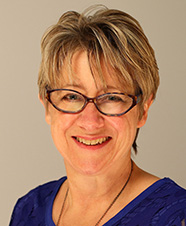
Louise Signal
Louise is a Director of the Health Promotion and Policy Research Unit at the University of Otago, Wellington. She is a leading health promotion researcher, practitioner and teacher who has worked in the field for over 30 years. Louise is a social scientist with a PhD in Community Health from the University of Toronto. She is the Regional Director of the South West Pacific Region of the International Union for Health Promotion and Education. Her research interests are in the fields of health promotion and public health policy, making and tackling health inequities. Her research includes identifying determinants of inequity in cancer treatment for Māori and environmental determinants of obesity. She is the lead researcher on the innovative Kids’Cam project that used automated cameras in New Zealand and Tonga to record the world in which children live. With Mihi Ratima, Louise co-edited the textbook Promoting Health in Aotearoa New Zealand.
Sarah Young
Department of Pathology, Dunedin School of Medicine (DSM)
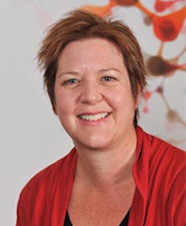
Sarah Young
Sarah is an academic immunologist. Her research focuses on the development of immune therapies, such as vaccines and cell therapies, for treating diseases such as cancer and autoimmune disease. Sarah also undertakes contract-based research for companies wishing to determine whether their developed product can modulate immune function. Sarah has several national and international collaborations including those with researchers at the Mayo Clinic and Cancer Research UK and has been awarded both a Sir Charles Hercus and a Fulbright Fellowship. Sarah has mentored more than 40 postgraduate students in her lab. She also undertakes a number of different teaching activities including several leadership roles in curriculum development. Sarah has been a member of numerous committees and research organisations associated with her academic activity as well as undertaking various service roles in the community. She is the current Head of the Pathology Department and Deputy Dean of the Dunedin School of Medicine.
Jim Cotter
School of Physical Education, Sport and Exercise Sciences
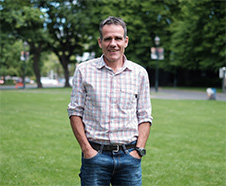
Jim Cotter
Jim Cotter researches how stressors within exercise and the environment affect people’s physiological systems and functional abilities. The systems of most interest are cardiovascular, cerebrovascular, thermoregulatory and fluid regulatory. The stressors of most interest are heat, hypoxia, dehydration and orthostatic; these typically coexist within exercise itself and can hasten fatigue, but - when repeated - mediate the adaptations that improve physical fitness and health. Environments that add to these stressors make physical activity more difficult but may be used adjunctively to improve adaptation, for example an athlete’s fitness, and even be used alone, for health outcomes of people who suffer through reduced mobility. Jim’s interest in extreme environments includes how they are framed. Arguably, the built environment is uniquely dangerous and thus extreme because humans are physiologically ill-equipped to detect or adapt to life devoid of physical stressors.
Haxby Abbott
Department of Surgical Sciences, DSM
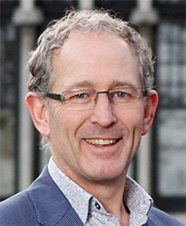
Haxby Abbott
Musculoskeletal disorders contribute to significant losses in quality of life and considerable demand on healthcare resources. Haxby Abbott’s research has focused on the management of common musculoskeletal problems in middle-aged and older adults, particularly osteoarthritis. Health economic evaluations of the cost-effectiveness of treatments have been his more recent focus. Haxby’s work has largely been funded by the Health Research Council of New Zealand. He has collaborated widely with researchers locally and internationally. Haxby has also worked with the Southern District Health Board to implement the Joint Clinic - a practical solution to addressing the unmet need of people referred to Dunedin Hospital with osteoarthritis. He has served as the chief editor for national and international academic journals, and has a steadfast interest in fostering high-quality research and developing new researchers.
Patrick Manning
Department of Medicine, DSM
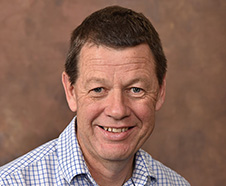
Patrick Manning
Patrick Manning is a consultant endocrinologist at the Southern District Health Board and a clinical teacher and researcher within the Department of Medicine at the Dunedin School of Medicine. He graduated from the Auckland Medical School and undertook postgraduate specialty training in endocrinology at the Middlesex Hospital in London. He returned to New Zealand in 1993 when appointed as a consultant endocrinologist and physician at Dunedin Hospital. He became Clinical Senior Lecturer and later Clinical Associate Professor in 2005. His clinical practice encompasses general endocrinology, diabetes and obesity medicine. His undergraduate teaching encompasses all levels of the medical curriculum. He has been an active clinical researcher for more than 20 years, mainly in the areas of obesity, diabetes and osteoporosis. He has published over 100 papers in peer-reviewed medical journals. He sits on national committees for the Royal Australasian College of Physicians and the Health Research Council.
Suetonia Palmer
Department of Medicine, University of Otago, Christchurch.
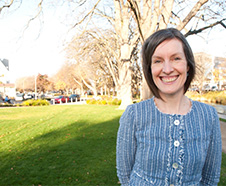
Suetonia Palmer
Suetonia is a kidney specialist. She works to understand how we know whether medicines are safe and effective in the areas of kidney diseases and diabetes. In the context of an increasingly complex body of scientific evidence, which can be contradictory and rapidly changing, Suetonia brings together hundreds of research trials to learn which of many treatment options can best meet patient preferences in healthcare. Her work includes assessing how certain we can be whether new healthcare strategies are better than existing care. Currently, Suetonia and her European collaborators are applying a broader view of healthcare to evaluate systems-wide strategies to make healthcare more affordable. Important findings from her work reveal that many commonly used therapies for blood pressure and diabetes have a more limited evidentiary basis than previously understood. She has received a Rutherford Discovery Fellowship and a L’Oréal For Women in Science Fellowship for her work.
Jessica Palmer
Faculty of Law
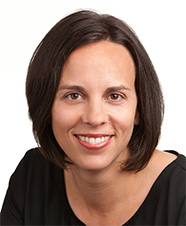
Jessica Palmer
Jessica’s research focuses on issues arising in trusts and the laws of contract and restitution. Her work is cited regularly by judges and other academics in New Zealand and overseas. Her writing has been particularly influential on the approach taken by courts to claims that many modern trusts should be ignored as shams or because one party holds too much power and should be treated as the true owner. Jessica was appointed, as one of only two academics, by the New Zealand Law Commission to provide advice on its Review of the Law of Trusts, a major project undertaken at the request of the Government to reform trust law. She regularly provides continuing legal education for both lawyers and judges at national seminars and conferences.
George Dias
Department of Anatomy, School of Biomedical Sciences
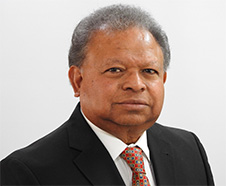
George Dias
George’s research focus is on biomaterials. His background in dentistry and surgery compliments this background. He pioneered the development of bone-graft substitutes from wool protein. His team also developed an extremely efficient and cost effective method to extract high-quality dietary protein from wool with unique health benefits. These proteins are being modified for 3D printing to design replacements for materials currently used in plastics such as toys and food packaging. They could also be used for electrospinning to develop fine fibres for smart garments. These endeavours will contribute to New Zealand’s high-value functional food and technology industries. George and his collaborators are also designing and fabricating metal plates and screws that break down safely in the body and are extremely useful to treat bone fractures. This innovation will reduce patient recovery time by faster bone healing. Eliminating the need for subsequent removal will greatly reduce health costs.
Inguruwatt Premachandra
Department of Accountancy and Finance, Otago Business School
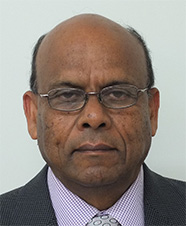
Inguruwatt Premachandra
With a strong management science and statistical background, Inguruwatt became a leader in creating a cross-disciplinary platform where the research interests of scholars in management science, finance, anatomy, and human nutrition are integrated. He has earned an international reputation for his work in applying the management science and econometric techniques in finance research. His recent research documents a novel market efficiency test for commodity futures and a new principal component factor model, making a significant contribution to the literature. His international research collaborations include researchers from the USA, Japan, Australia, and Sri Lanka. Nationally, he has actively engaged with researchers in the departments of Anatomy and Human Nutrition at Otago. He has undertaken several consultancy projects, which include the Clyde Dam project. During the author’s academic career of 26 years, he has served as a visiting professor at leading academic institutions in Japan and the USA.
Stephen Knowles
Department of Economics, Otago Business School
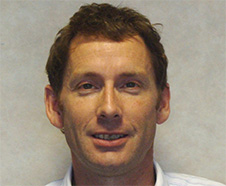
Stephen Knowles
For much of Stephen’s research career he used cross-country data to analyse why some countries are poorer than others, focusing especially on the importance of education, health, inequality, institutions and social capital in the economic development process. In recent years he has analysed people’s preferences for the types of countries they think foreign aid should be targeted to. He is also working on what motivates people to give money to charity, and is especially interested in analysing the factors that determine whether people have a preference for donating to international development charities (those helping people in poor countries overseas) or donating to domestic charities. Stephen is a former Head of the Economics Department at Otago and former President of the New Zealand Association of Economists.
John Horwood
Department of Psychological Medicine, University of Otago, Christchurch
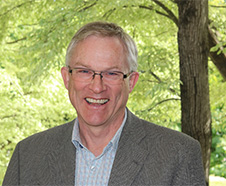
John Horwood
John is Director of the long-running Christchurch Health and Development Study (CHDS). This internationally renowned study has been documenting the life history of a birth cohort of 1265 children born in Christchurch in 1977. The CHDS research programme has a wide-ranging focus on the development, course and consequences of mental health, substance use and related adjustment problems over the life course. A specific focus of his current research is on the long-term mental health impacts of the Canterbury earthquakes on the cohort. John’s wider research activities include research underpinning the development and evaluation of the Christchurch-based Early Start service, an early intervention programme for high needs families. He is also engaged in a range of international consortia examining genetic factors in the development of mental disorders; the harms of cannabis/alcohol use; and the long-term adult functional outcome for children born preterm or with very low birthweight.
Anthony Ritchie
Department of Music, Theatre and Performing Arts
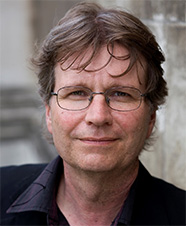
Anthony Ritchie
Anthony studied composition at The University of Canterbury, and Liszt Academy in Hungary, completing a PhD on the music of Bartok. He moved to Dunedin to be Mozart Fellow in 1988-9, and was appointed lecturer in 2001. His 198 opuses include four symphonies, six operas, and concertos, chamber music and songs. His music has been performed by renowned ensembles such as The Takacs Quartet, and soloists such as Bella Hristhova. Eleven CDs of his music have been released and, in 2016, he was joint winner of The Classical Album of the Year at the New Zealand Music Awards. The BBC recorded his A Bugle Will Do for broadcast in 2014. His oratorio Gallipoli to the Somme has been programmed for further performances in London and Oxford, 2018. Anthony has written extensively about New Zealand music, and has been a tireless champion for it through long involvement with many musical organisations.
Ruth Fitzgerald
Department of Anthropology and Archaeology
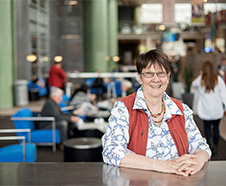
Ruth Fitzgerald
Ruth Fitzgerald’s research explores the social significance of health and the cultural role of biomedicine in contemporary ideologies of health. Her qualitative research style draws on anthropological techniques of interviewing and observational studies to discuss, with permission, those aspects of people’s cultural lives that they are willing to share. Her research includes studies of concepts such as ‘care’ and ‘choice’ in health care decision-making, moral reasoning in issues of human reproduction, health care reforms and restructuring, emotional labour for scientists working in health care, diverse understandings of oral health, and the cultural politics of GM food. In discovering how various people make meaning out of their experiences in these often highly politicised and volatile arenas, she has investigated the lives of health care workers as frequently as their patients. Her research has been recognised by a Royal Society Medal (NZ) and her election as a Fellow of the Royal Anthropological Institute (UK).
Greg Anderson
Centre for Neuroendocrinology and Department of Anatomy
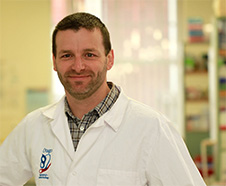
Greg Anderson
Greg's research group’s interests are focused on the regulation of fertility by hormones such as leptin and insulin that provide the brain with information about the body’s nutritional status, and on the effects of a recently discovered group of brain cells called RFRP neurons on fertility and stress responses (such as anxiety). Beyond their focused basic research projects, their ‘big picture’ goal is the development of new and improved treatments for infertility and anxiety-related disorders; both of which are unseen conditions experienced by a large proportion of modern societies. For example, they are currently developing drugs that combat the anxiety-promoting effects of RFRP neurons. The Anderson Research Group is based in the Department of Anatomy and forms one of the laboratories that make up the University of Otago's Centre for Neuroendocrinology.
Michelle Thompson-Fawcett
Department of Geography
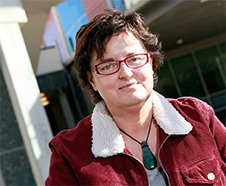
Michelle Thompson-Fawcett
Michelle’s research explores urban and environmental planning practices at the local level. In particular, her work examines the extent to which different groups are able to engage in, influence, or even develop self-determination in regard to city and regional decision-making. In the last two decades most of the research has focused on investigating the level of achievement of Māori communities’ aspirations for urban design, cultural landscape management, and the management of natural and physical resources. The research has involved 170 research outputs, 28 research grants, 10 PhD students, 53 Master’s students, and 22 summer scholarship students. The nurturing of students is a principal goal given the futures orientation of the subject matter. The research has a firm foundation in an ethic of reciprocity between researcher and community, prioritising a commitment to bringing about societal transformation in response to the power inequities and social injustices that the research exposes.
Claudine Stirling
Department of Chemistry
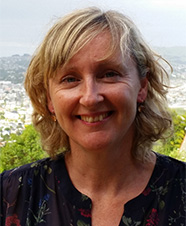
Claudine Sterling
Claudine Stirling is an isotope geochemist. She investigates natural variations in the relative abundances of isotopes in metals and how they regulate Earth’s biogeochemical cycles. She is best known for her research of natural uranium on and beyond Earth, which provides a wealth of information on past sea level variations and the rise and fall of oxygen in Earth’s early oceans and atmosphere for modelling future-climate scenarios, as well as reconciling the formation of the early Solar System. Claudine received her PhD from the Australian National University, and held appointments at the University of Michigan and ETH Zürich before returning to New Zealand in 2005. She is Director of the Centre for Trace Element Analysis, a mass spectrometry suite that provides metal concentration and isotope analyses to the University of Otago and its clients. Claudine also serves on several international boards and editorial committees.
David Bell
College of Education
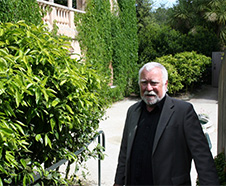
David Bell
David has enjoyed working with Otago pre-service teaching students for the past twenty years, in the past decade at the University of Otago College of Education. His teaching focuses largely on curriculum and pedagogy in humanities subjects that have included the visual arts, art history and classics, and occasionally extended to include Japanese art history and Asian Studies. His research interests embrace strategies for aesthetic education, inter-cultural education through the arts, and learning in diverse museum settings. His passion for Japanese arts, especially ukiyo-e ‘floating world pictures’, has generated a range of research articles, catalogues, books and exhibition projects on the Japanese print, art collecting, the dramatic narrative of Kanadehon Chūshingura, and the distinctive ‘floating world’ aesthetic sensibility of iki. His monograph publications in this field include Chūshingura and the Floating World (2001), Ukiyo-e Explained (2004) and the examination of Katsushika Hokusai’s inventive methodology in Hokusai’s Project (2007).
Staff promoted to Associate Professor:
Azam Ali (Centre for Materials Science and Technology); John Ashton (Pharmacology and Toxicology); Alaa Bekhit (Food Science); Rebecca Campbell (Physiology); Ben Daniel Motidyang (Higher Education Development Centre); Fiona Edgar (Management); David Eyers (Computer Science); Sebastian Filep (Tourism); Alex Gunn (College of Education); Hilary Halba (Music, Theatre and Performing Arts); Sian Halcrow (Anatomy); James Headley (Politics); Janice Lord (Botany); Nigel Lucas (Chemistry); Liana Machado (Psychology); Sandra Mandic (Physical Education); Simone Marshall (English); Christoph Matthaei (Zoology); Lynn McBain (Primary Health Care & General Practice, UOW); Giles Newton-Howes (Psychological Medicine UOW); David Orlovich (Botany); Bruce Russell (Microbiology and Immunology); Mike Sam (Physical Education); Ben Schonthal (Theology and Religion); Daryl Schwenke (Physiology); Philippa Seaton (Postgraduate Nursing UOC); Sally Shaw (Physical Education); Trent Smith (Economics); Lee Thompson (Population Health, UOC); Steve Tumilty (Physiotherapy); Sigurd Wilbanks (Biochemistry); Hamish Wilson (Medical School); Ming Zhang (Anatomy); Tony Walls (Paediatrics, UOC).
Research Associate Professors: Anitra Carr (Pathology UOC); Dawn Coates (Oral and Diagnostic and Surgical Sciences); Margaret Currie (Pathology UOC); Michelle McConnell (Microbiology and Immunology); John Pearson (Dean’s Department UOC); Nevil Pierse (Public Health UOW); Janet Stephenson (Geography); Clinical Associate Professor: Darren Hooks (Medicine UOW).
A list of Otago experts available for media comment is available elsewhere on this website.
Electronic addresses (including email accounts, instant messaging services, or telephone accounts) published on this page are for the sole purpose of contact with the individuals concerned, in their capacity as officers, employees or students of the University of Otago, or their respective organisation. Publication of any such electronic address is not to be taken as consent to receive unsolicited commercial electronic messages by the address holder.